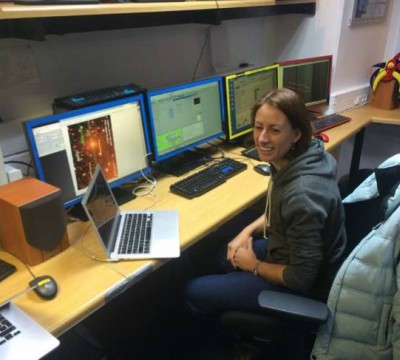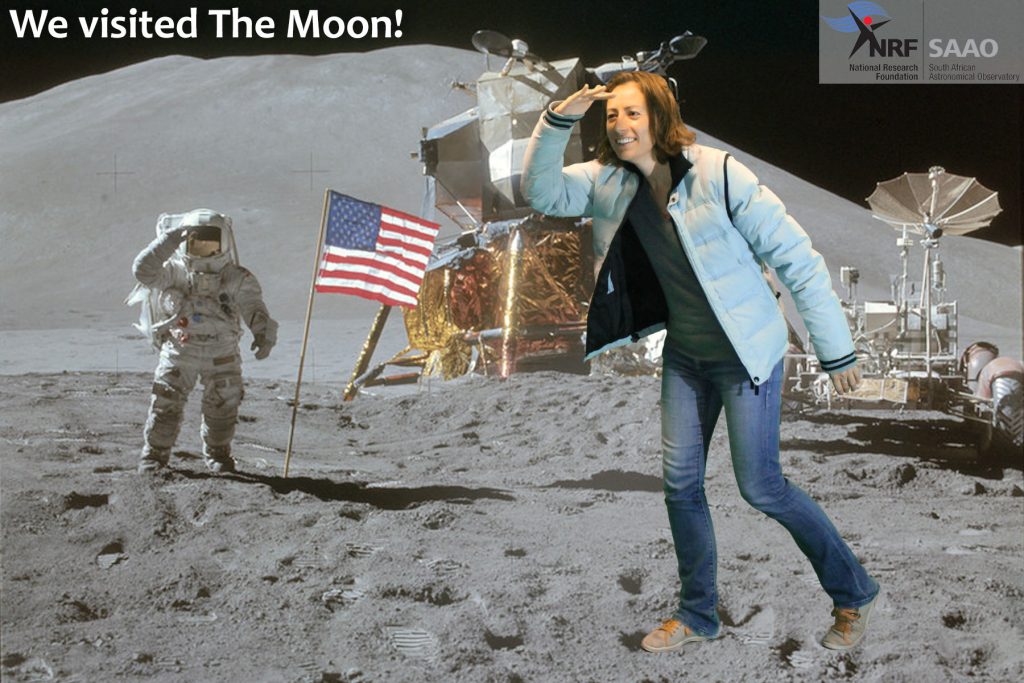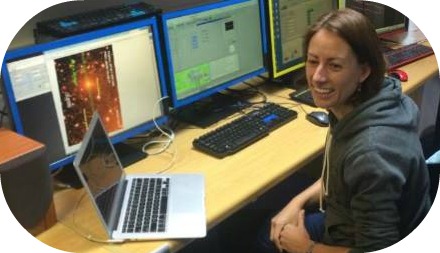
19 Sep Meet the team: Dr Rosalind Skelton
Getting to know SALT astronomer,
Dr Rosalind Skelton
Dr Rosalind Skelton, known to all as Ros, has been part of the SALT Astronomy team for just over a year.
How did you become an astronomer?
I grew up in Rustenburg in the North West province of South Africa and spent many happy camping trips in the bushveld with my family, where the beautiful dark skies were endlessly fascinating. My curiosity about the Universe and love of maths and science led me to study Physics at the University of Cape Town. My elective courses in Astronomy were always my favourite (who wouldn’t love afternoon tutorials in the Planetarium, with the inspiring Tony Fairall as our guide to the night sky?). I joined the National Astrophysics and Space Science Programme (NASSP) for my Masters, where I started my first research in extragalactic astronomy. I then took a somewhat circuitous route around the world, spending almost 7 years abroad before returning to Cape Town. I did my PhD at the Max Planck Institute for Astronomy in Heidelberg, Germany, and a postdoc at Yale University in the USA before taking up a postdoctoral fellowship at the Observatory and then joining the SALT team last year.
What is your research on?
My research is on galaxy formation and evolution. I am particularly interested in the effects of environment on the quenching of star formation and the growth of galaxies. I am looking at how mergers and close companion galaxies impact galaxy properties in different environments, from the field to rich clusters, and at different times in the Universe’s history. I am part of the 3D-HST team, which has used exquisite Hubble Space Telescope data to study changes in galaxy populations from the “cosmic noon” (redshifts of approximately 1 to 2.5), when galaxies formed the bulk of their stars, to today.
What is your role on the SALT team?
As an extragalactic astronomer, I mainly make use of the long-slit and multi-object spectroscopy (MOS) capabilities of the RSS for my own research. I would like to improve the usability of SALT’s MOS tools, from the mask design software to the data reduction pipelines. I am the liaison astronomer for many of the MOS programmes and I manage the mask cutting process, as well as regularly observing on SALT.
What have been some of the challenges you’ve faced?
Apart from getting through a PhD in Astronomy, dealing with ups and downs in confidence at different stages and the cultural challenges of moving to new countries, I think the hardest thing has probably been the uncertainty along the way, not knowing whether I would get a job in this field that I love, while being able to stay in a place that I love near people I love. I feel very privileged to be part of the SALT team, to regularly spend time in the peaceful Karoo and continue working on the challenges of galaxy evolution in the Mother City.
What do you enjoy doing outside of astronomy?
I love dancing lindy hop, the vintage swing dancing style that developed with the big band jazz of the 1930s and 40s. Since its revival in the 1980s, lindy hop has become a global phenomenon, and our vibrant scene here in Cape Town is growing in leaps and bounds.



